Exploring the complex history and ongoing struggle for human rights in South Africa, the Johannesburg and Soweto tour offers a comprehensive 6-7 hour journey through the nation’s transformative past. From the iconic sights of Constitution Hill and the FNB Stadium to the vibrant Vilakazi Street, visitors can explore the stories of anti-apartheid activists and witness the remarkable urban renewal. With an optional visit to the Apartheid Museum, this immersive experience provides a deeper understanding of a pivotal era that continues to shape the country’s present and future.
Key Points
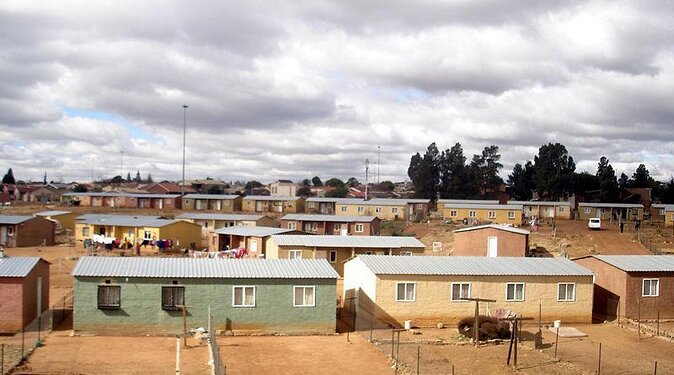
- A 6-7 hour tour that provides an introduction to the history, culture, and iconic sights of Johannesburg and Soweto.
- Highlights key landmarks like Constitution Hill, FNB Stadium, and Vilakazi Street, exploring South Africa’s human rights struggles and the Soweto Student Uprising.
- Includes air-conditioned transportation, a knowledgeable guide, and an optional visit to the Apartheid Museum for a deeper understanding of the apartheid era.
- Offers insights into the vibrant neighborhoods of Braamfontein and Newtown, showcasing urban renewal and cultural rejuvenation.
- Allows visitors to explore the Mandela House Museum and visit the Hector Pieterson Memorial, which commemorates the pivotal role of the 1976 Soweto Student Uprising.
Tour Overview
This 6-7 hour Johannesburg and Soweto tour highlights the city’s most iconic sights, providing visitors with a comprehensive introduction to the rich history and vibrant culture of the region.
The small-group tour includes air-conditioned transportation and a knowledgeable guide, allowing guests to explore key locations such as Constitution Hill, the FNB Stadium, and Vilakazi Street.
Along the way, travelers will learn about South Africa’s human rights struggles, visit the Hector Pieterson Museum to understand the 1976 Soweto Student Uprising, and have the option to explore the Apartheid Museum.
With bottled water and lunch included, this tour offers a well-rounded experience for those seeking to explore Johannesburg’s past and present.
You can also read our reviews of more tours and experiences in Johannesburg.
Key Sights
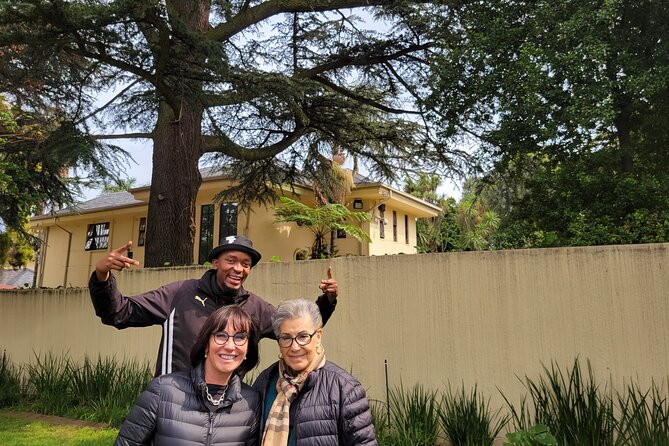
Constitution Hill provides visitors with a glimpse into South Africa’s complex history and ongoing efforts to uphold human rights. Guests can learn about the site’s role as a former prison that held notable political activists, including Nelson Mandela and Mahatma Gandhi.
The tour also includes a drive through the vibrant neighborhoods of Braamfontein and Newtown. Visitors will make a brief stop at the FNB Stadium, home to the Soweto Derby football matches.
The highlight of the tour is a visit to Vilakazi Street, where travelers can shop for souvenirs and tour the Nelson Mandela House Museum.
Constitution Hill
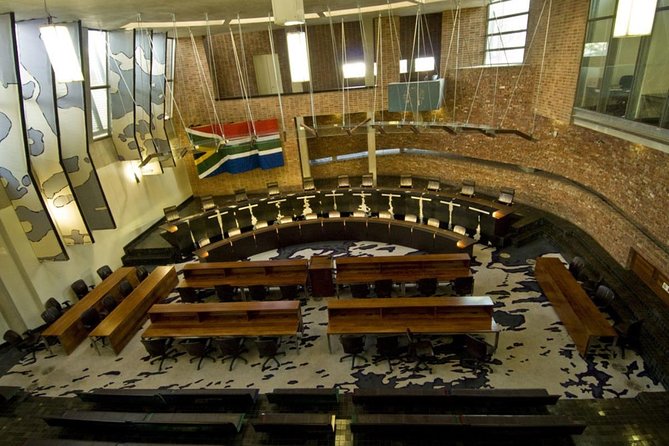
At the heart of Johannesburg’s historic landscape stands Constitution Hill, a site that offers visitors a profound exploration of South Africa’s complex political history and its ongoing commitment to human rights.
Here, visitors can learn about the nation’s journey towards democracy, from its troubled past under apartheid to the hotel of its progressive constitution.
The precinct features the Old Fort Prison, where many political activists were once incarcerated, including Nelson Mandela. Guided tours provide an immersive experience, allowing visitors to explore the stories of those who fought for freedom and equality.
Constitution Hill stands as a powerful testament to South Africa’s resilience and its continued strive for justice and human dignity.
Braamfontein and Newtown
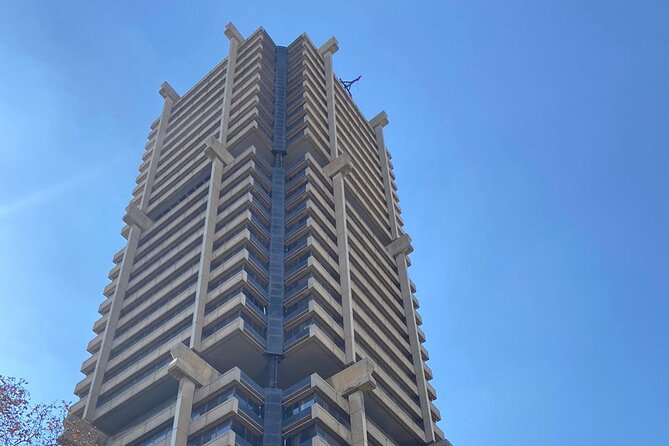
The tour then takes visitors through the vibrant neighborhoods of Braamfontein and Newtown, showcasing the city’s urban renewal and cultural rejuvenation.
Braamfontein is known for its trendy cafes, street art, and lively student population, while Newtown is home to museums, theaters, and the iconic Market Theatre. Guests will drive through these areas, taking in the sights and sounds of the city’s transformation.
The tour guide will provide commentary on the history, architecture, and ongoing development projects that have breathed new life into these once-neglected neighborhoods. Visitors can observe the blend of old and new, as historic buildings are repurposed and modern structures rise, creating a dynamic and ever-evolving urban landscape.
FNB Stadium
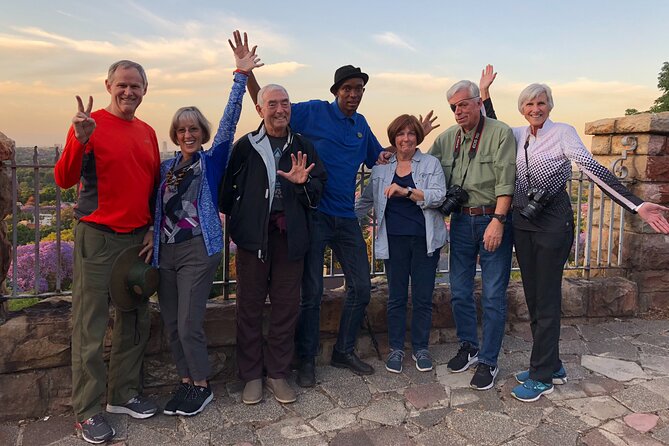
Next, the tour makes a brief stop at the FNB Stadium, also known as Soccer City. This iconic venue hosted the 2010 FIFA World Cup final and is the largest stadium in Africa, with a capacity of over 94,000 spectators.
Visitors can take in the impressive architecture and learn about the stadium’s rich history. It’s a significant landmark that has played a vital role in South Africa’s sporting and cultural landscape.
Though the visit is brief, it offers a glimpse into the country’s passion for football and the transformative impact of hosting major international events.
The tour then continues its exploration of Soweto, delving deeper into the region’s captivating history and vibrant culture.
Vilakazi Street
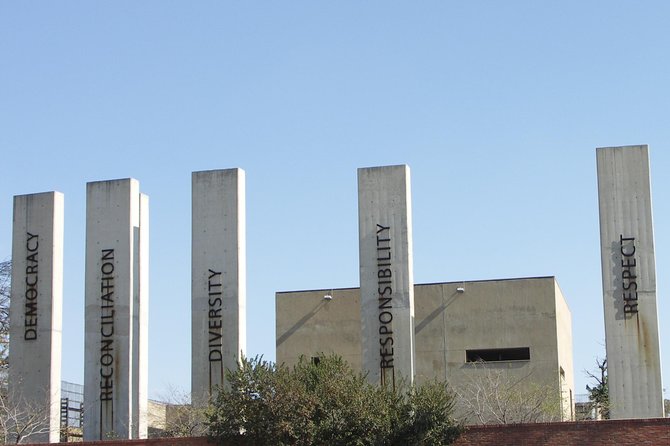
Typically, the tour then proceeds to the iconic Vilakazi Street, which serves as the heartbeat of Soweto and a significant site in South Africa’s liberation history.
Explore the Mandela House Museum, where Nelson Mandela lived before his imprisonment.
Browse the vibrant shops and stalls, offering a diverse array of traditional crafts, clothing, and souvenirs.
Soak in the lively atmosphere and engage with the friendly locals who call this neighborhood home.
Pause at the humble home of Archbishop Desmond Tutu, another renowned South African anti-apartheid activist.
Immersing themselves in the rich cultural heritage and the stories that unfold on Vilakazi Street, guests gain a deeper understanding of Soweto’s pivotal role in the struggle for freedom and equality.
Hector Pieterson Museum and Memorial
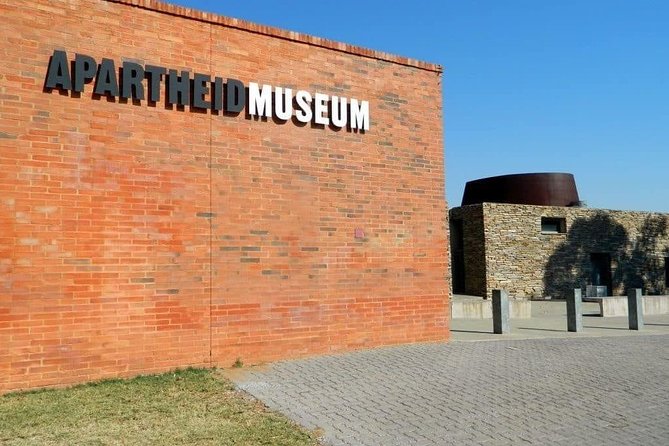
Situated within Soweto, the Hector Pieterson Museum and Memorial commemorates the tragic events of the 1976 Soweto Student Uprising, which played a pivotal role in the anti-apartheid struggle.
Visitors can learn about the harrowing experiences of the day through multimedia exhibits, archived footage, and personal accounts.
The memorial, named after the first documented victim of the protests, stands as a solemn reminder of the sacrifices made by students fighting for their right to an equal education.
Exploring this poignant site offers an opportunity to reflect on South Africa’s complex history and the ongoing fight for social justice. It’s a must-visit for anyone seeking to understand the country’s turbulent past.
Optional Attraction
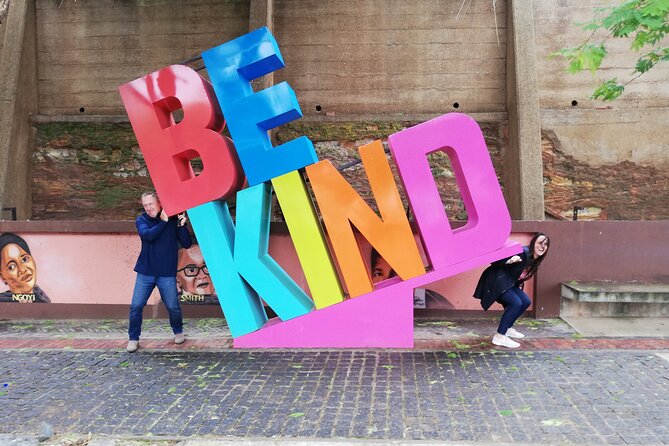
Along With the key sights, the tour also provides an optional visit to the Apartheid Museum, which is open from Thursdays to Sundays.
This world-class museum offers a comprehensive and thought-provoking exploration of South Africa’s complex history of apartheid. Visitors can expect to:
- Gain a deeper understanding of the policies and practices that defined the apartheid era
- Reflect on the impact of this era on individuals, communities, and the nation as a whole
- Explore the long road to democracy and the continued fight for equality and human rights
- Leave with a newfound appreciation for the resilience and courage of the South African people.
Frequently Asked Questions
Can I Bring My Own Food on the Tour?
Yes, participants can bring their own food on the tour. The tour includes bottled water and a provided lunch, but individuals are free to supplement with their own snacks or meals if preferred.
Is Photography Allowed at All the Sites?
Yes, photography is generally allowed at the sites on the tour. However, visitors should check with their guide or staff at each location for any specific restrictions. Most sites welcome photos, but visitors should be respectful and follow any guidelines.
What Is the Dress Code for the Tour?
The tour generally has a casual dress code. Comfortable, weather-appropriate clothing and walking shoes are recommended, as you will be exploring outdoor sites. There are no strict dress requirements, but visitors should dress respectfully when visiting historical and cultural landmarks.
Are There Any Health/Dietary Restrictions for the Included Lunch?
The tour provider doesn’t specify any dietary restrictions for the included lunch. Participants with special dietary needs should notify the guide ahead of time so accommodations can be made, if possible.
Can I Make Changes to the Tour Itinerary on the Day?
Customers can’t make changes to the tour itinerary on the day. The tour has a set schedule, and the guide will lead the group through the planned activities. Any changes would need to be requested in advance with the tour operator.
Recap
The Johannesburg and Soweto tour provides a powerful and immersive exploration of South Africa’s complex history and ongoing pursuit of human rights.
Visitors will gain a deeper understanding of the nation’s struggles and resilience, while witnessing the vibrant urban renewal.
The tour culminates with an optional visit to the Apartheid Museum, offering a transformative learning experience.
More Tours in Johannesburg
More Tour Reviews in Johannesburg
Not for you? Here's more things to do in Johannesburg we have recnetly reviewed
- Innercity Walking Tour
- Private Half Day Authentic Soweto Tour From Johannesburg or Pretoria
- Full-Day Soweto, Apartheid Museum and Lunch Tour
- Cradle of Humankind World Heritage Site
- Soweto /Johannesburg and Apartheid Museum Guided Full Day Tour
- Lesedi Cultural Village & Cradle of Humankind Guided Tour
- Unique Street Food Tour From at Least 6 Different Cultures!
- 3-Day Kruger National Park Safari Including Breakfast and Dinner
- Lesedi Cultural Village
- Cradle of Human Kind Tour – Maropeng and Wondercave Tour
- Cradle of Human Kind Tour and Lesedi Cultural Village Day Tour
- 3 Day Greater Kruger National Park Adventure Safari
